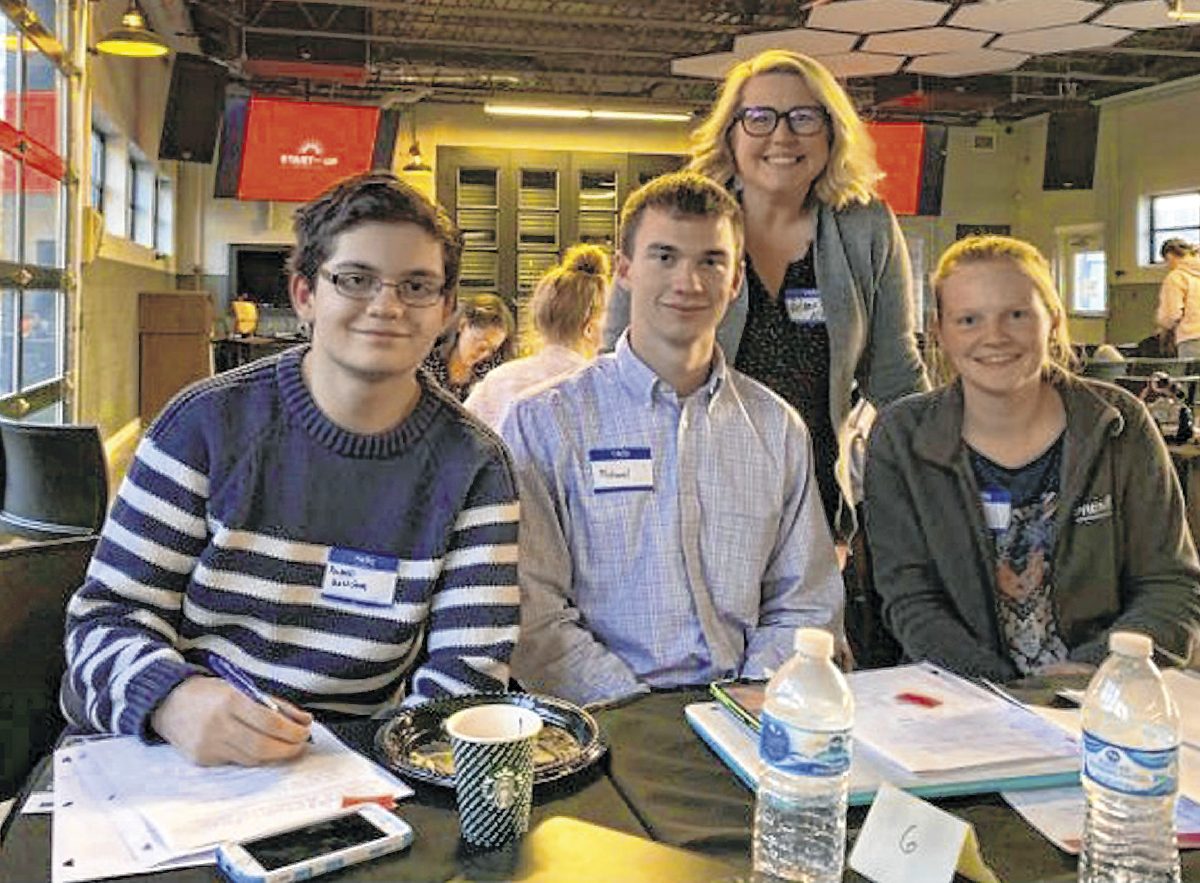
Tribune Staff Reports
Trinity Lutheran High School senior Michael Claycamp and Brownstown Central High School junior Macey Stuckwisch recently attended the inaugural Hackathon at OutHouse Coworking in Irvington.
The STARTedUP Foundation partnered with Shepherd Community Center to create the event for high school students.
A hackathon (hack + marathon) brings together a large group of people that breaks into teams, and they use innovative solutions to create a new product or service for use, typically as a mobile app, website or new product.
Hacking is creative problem-solving. It does not have to involve technology, and Hackathons usually last between one and three days, hence the word “marathon.” They also have been used recently by cities, universities and nonprofits to bring large groups of people from various fields of expertise together to solve tangible social issues, tackle environmental concerns or create positive behavior or systemic change.
A Hackathon engages large groups of entrepreneurial youth with their communities. Local governments present large challenges to a group of student attendees, and attendees must network in order to build a well-rounded team and spend several hours building a solution and connecting with individuals that can complement or supplement the group skill sets.
During the event Nov. 9, ideas and challenges to solve were presented. During the event and after training workshops in the morning, attendees split into teams and worked on creating solutions to the challenges.
STARTedUP’s Hackathon had an emphasis on educating and training the event attendees with Shepherd Community Center’s Poverty 101 Workshop, Teachers Credit Union’s Financial Literacy 101 Workshop and innovative problem-solving methodology workshops.
At the end of the Hackathon, each team pitched their proposed solutions to be judged and voted on by some of Indianapolis’ top entrepreneurial leaders. At the conclusion of judging, a variety of prizes were given to the winning teams.
Claycamp and Stuckwisch competed against six teams of students from Indiana and Arkansas. The idea they created, Openly Simple, received second place, and they received part of the $8,000 in 529 scholarship money.
Openly Simple is a 501(c)(3) not-for-profit organization that’s an online interviewing platform that allows members to be a part of interviews by sending in questions. Active students will receive incentives instead of a grade. These interviews are meant to focus on life skills that schools are unable to teach.
“At the event, you are paired with random people and are forced to work with people you have never met. That way, you create new contacts and have different points of view,” Claycamp said. “Macey and I both from Jackson County just got lucky to be put together.”
At the Hackathon, students also met mentors with dedicated mentor sessions and other like-minded students in their state, gained perspective on what it means to be struggling with poverty, developed personal confidence and learned about important organizations and financial opportunities in their city.
“Indiana’s issue with poverty is not a lack of resources, but a lack of awareness and access to what is already available,” said Jay Height, executive director of Shepherd Community Center.
Generational poverty exists because of lack of access and awareness to information (opportunities and financial literacy) and lack of access and awareness to banking, investing and budgeting.
